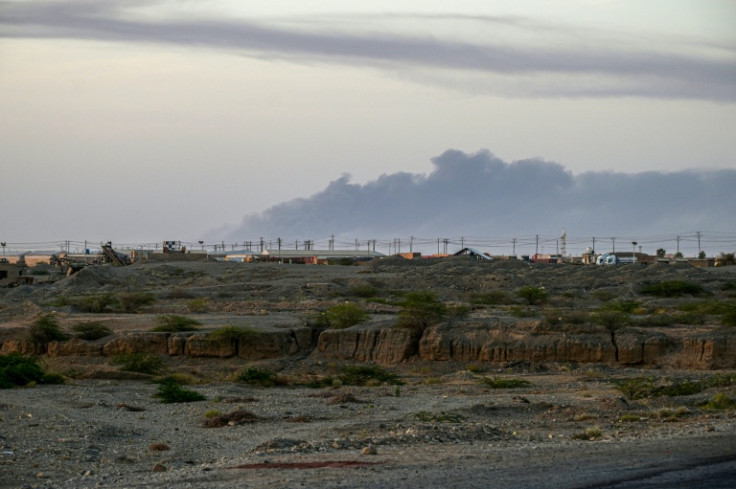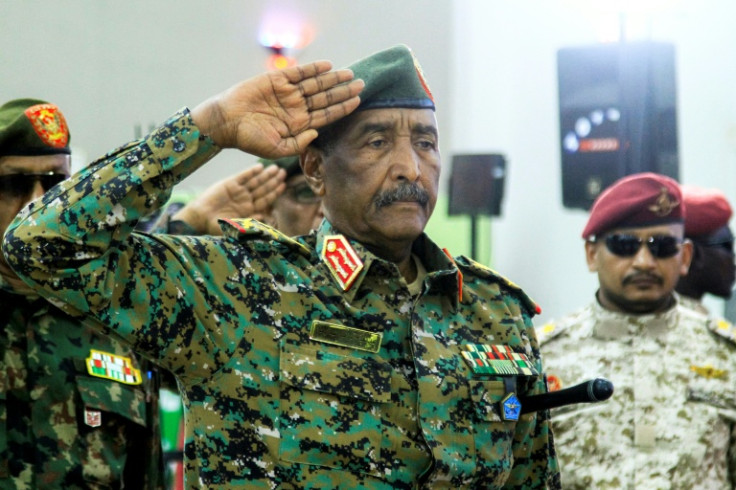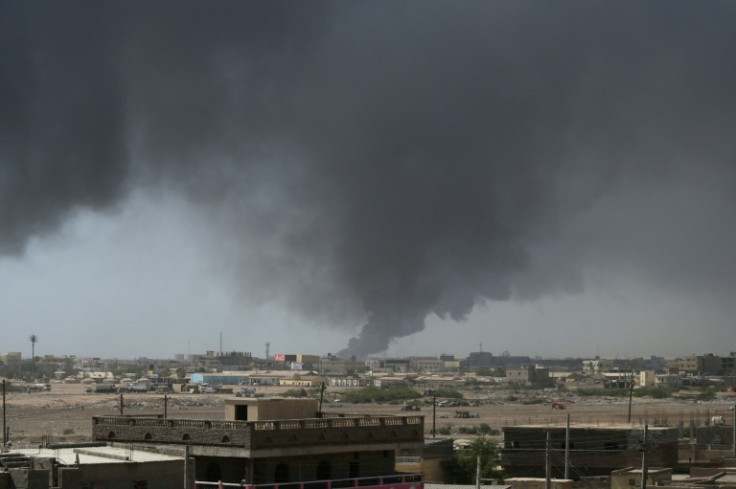Drone Strikes Rock Port Sudan In Third Day Of Attacks

Drones struck the airport and knocked out power across Port Sudan on Tuesday, officials said, the third straight day the Sudanese army-aligned government's seat of power has come under attack.
The strikes, which also targeted an army base, come a day after the country's main fuel depot was hit, causing a massive blaze just south of the eastern city which had until Sunday been considered a safe-haven for hundreds of thousands of displaced people fleeing the two-year war.
An AFP correspondent reported loud explosions at dawn and plumes of smoke over the Red Sea coastal city, one blast heard from the direction of the port and another from a fuel depot just south.
One drone hit "the civilian section of the Port Sudan airport", an airport official told AFP, two days after the facility's military base was first attacked in drone strikes the army blamed on the paramilitary Rapid Support Forces.
The RSF has not said it was behind the drone attacks.
Air traffic was halted at the war-torn country's only airport still handling international civilian flights, the source said.
Another drone targeted the main army base in the city centre, an army source said, and witnesses said a nearby major hotel was hit.
Both sites are close to the residence of army chief Abdel Fattah al-Burhan, who has been at war with his former deputy Mohamed Hamdan Daglo, the RSF commander, since April 2023.
A third drone hit a fuel depot near the southern port in the densely populated city centre, where the UN, aid agencies and hundreds of thousands of displaced people have relocated from Khartoum.
Later in the morning, drones hit Port Sudan's main power substation, the national electricity company said, causing a blackout across the city.
A third drone hit a fuel depot near the southern port in the densely populated city centre, where the UN, aid agencies and hundreds of thousands of displaced people have relocated from Khartoum.
AFP photos showed thick black smoke billowing over Port Sudan's skyline after the strikes.
Witnesses in the city's north reported anti-aircraft fire from a military base. There were no immediate reports of casualties.
The attacks have disrupted daily life in the city.
Car queues stretched for more than a kilometre (mile) outside the few fuel stations still operating as motorists scrambled to fill their tanks amid growing fears of supply disruptions.
The RSF has increasingly relied on drones since losing territory including nearly all of Khartoum in March, attacking deep into army-held territory.
On Monday, UN chief Antonio Guterres said reports of paramilitary attacks on Port Sudan were a "worrying development threatening the protection of civilians and humanitarian operations".
Nearly all humanitarian aid into Sudan, where famine has already been declared and nearly 25 million people suffer dire food insecurity, arrives through Port Sudan.
From the airport, where Sudanese airlines had resumed flights after the first drone strike on Sunday, "fires broke out in multiple buildings" following the latest explosion, a traveller told AFP.
The army source said that strike had also "targeted fuel depots at the airport".
The RSF has in recent weeks attacked civilian infrastructure across the army-controlled northeast, causing widespread blackouts for millions of people.
Sudan's war has killed tens of thousands of people, uprooted 13 million and created the world's largest hunger and displacement crises.
It has effectively split the country in two, with the army controlling the centre, north and east while the RSF holds nearly all of the vast western region of Darfur and, with its allies, parts of the south.
According to experts, the RSF's increased reliance on drones after it lost Khartoum serves to both telegraph its reach and hinder the army's supply lines.
The RSF has used both makeshift and highly advanced drones, which Sudan's army has accused the United Arab Emirates of supplying.
The army-aligned foreign ministry said Tuesday it "respected" the ruling based on the ICJ's lack of jurisdiction due to the UAE's 2005 "reservation" on the UN Genocide Convention.
But it added the court's refusal to hear the case "cannot legally be interpreted as a denial of the violations, nor does it represent any acquittal of the UAE from its involvement in genocide".
The foreign ministry vowed to continue pursuing legal avenues, saying: "The legal battle against those attacking Sudan is not over."
Egypt, which shares a border with Sudan, condemned Tuesday's latest attacks.
Cairo warned of "the danger of the latest escalation" and its severe impact on "ceasefire efforts, protection of civilians and boosting the delivery of humanitarian aid" to the war-torn country.


© Copyright AFP 2026. All rights reserved.





















